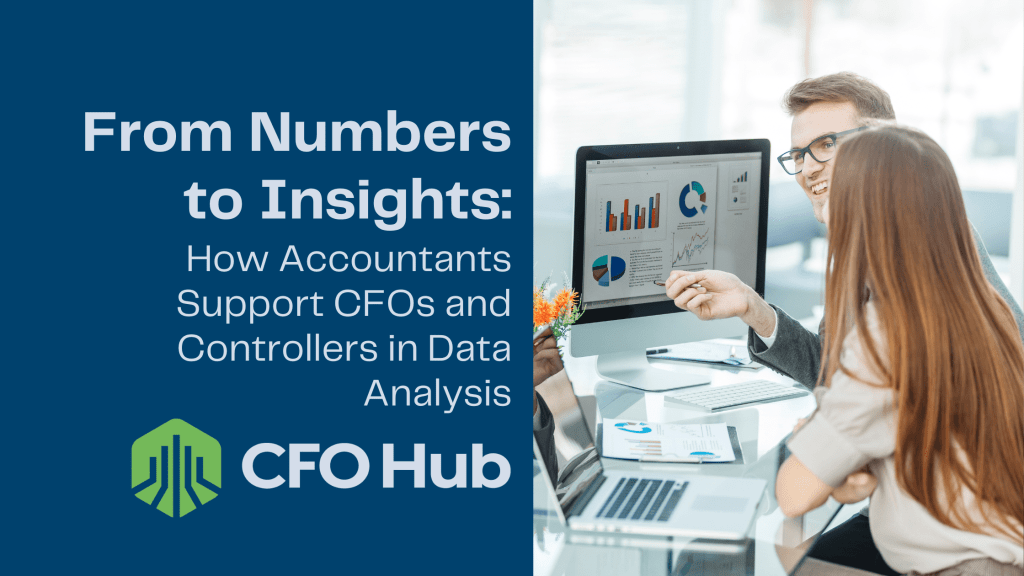Accountants are essential to any finance department, providing the necessary data analysis and insights to help CFOs and controllers make informed decisions. Data analysis requires more than just numbers, as it involves understanding the story behind the numbers. And your guess is as good as ours; accountants are the ones who can help make sense of the data and interpret it for executives.
This article delves deeper into how accountants leverage their expertise to turn numbers into meaningful insights, helping CFOs and controllers make sound decisions. We’ll look at the different facets of data analysis and how accountants contribute to each one.
Facets of Data Analysis and How Accountants Contribute to Each One
Data analysis begins with gathering information from multiple sources. Accountants can help CFOs and controllers by organizing the data into meaningful information, identifying trends, and summarizing it into useful insights. They are also essential in determining the reliability of the data and ensuring accuracy in financial reporting.
Here’s a clearer breakdown of an accountant’s role in data analysis:
1. Data Collection
Data collection is the first step in data analysis. Supporting CFOs and controllers, accountants usually collect financial data from various sources, including external databases, internal reports, and accounting software. They then organize all this material for effortless accessibility and further processing.
2. Data Processing
Once data is gathered and organized, accountants can help CFOs and controllers analyze it to identify issues and opportunities. This involves evaluating the data for areas of improvement, conducting cost-benefit analyses, and analyzing financial trends. Using their knowledge of accounting principles, accountants can provide a deeper understanding of the numbers, which can equip CFOs and controllers with the insights needed to make informed decisions.
3. Data Interpretation
Interpreting data is another important area where an accountant’s expertise is invaluable in helping CFOs and controllers make the best decisions. An accountant’s ability to interpret the numbers can provide a clear picture of financial health, allowing CFOs to identify what needs improvement or adjustment. Accountants can also assist in interpreting non-financial data, such as customer feedback or market trends, to help CFOs and controllers improve processes.
4. Data Forecasting
Accountants can help CFOs and controllers predict future performance by evaluating current trends and making projections based on past performance. Accounting data can be used to create financial models that estimate the effects of certain decisions or economic conditions. Accountants can also use their expertise to evaluate these models for accuracy and reliability when making decisions.
5. Sharing Results
Data reporting is the last step in data analysis. Accountants can help CFOs and controllers prepare reports that summarize their findings in a way that’s effortless to understand. This includes creating graphs, charts, and tables to present data in an organized manner.
CFO Hub is Your No.1 Rated Accounting, Controller, and CFO Services Partner!
Data analysis is essential for organizations to stay competitive. With access to the right data, CFOs and controllers can make better decisions that increase efficiency and profitability and support long-term success. Accountants are key players in this process as they can provide invaluable insights into the financial performance of an organization. They can also help CFOs and controllers identify avenues for cost savings and potential growth opportunities.
At CFO HUB, we offer a suite of outsourced accounting, controller, and CFO services that can help organizations maximize their efficiency. Our team of experienced accountants can provide strategic guidance to CFOs and controllers, helping them utilize data analysis to make informed decisions.
Contact us today to learn more about how our services can benefit your organization.
Mark is an accounting and finance professional with over a decade of experience in public accounting and consulting. As both an accountant and entrepreneur, he is passionate about helping clients strategically organize and grow their businesses to reach their goals.
Visit Mark's Expert Hub to learn more about his experience and read more of his editorial content

